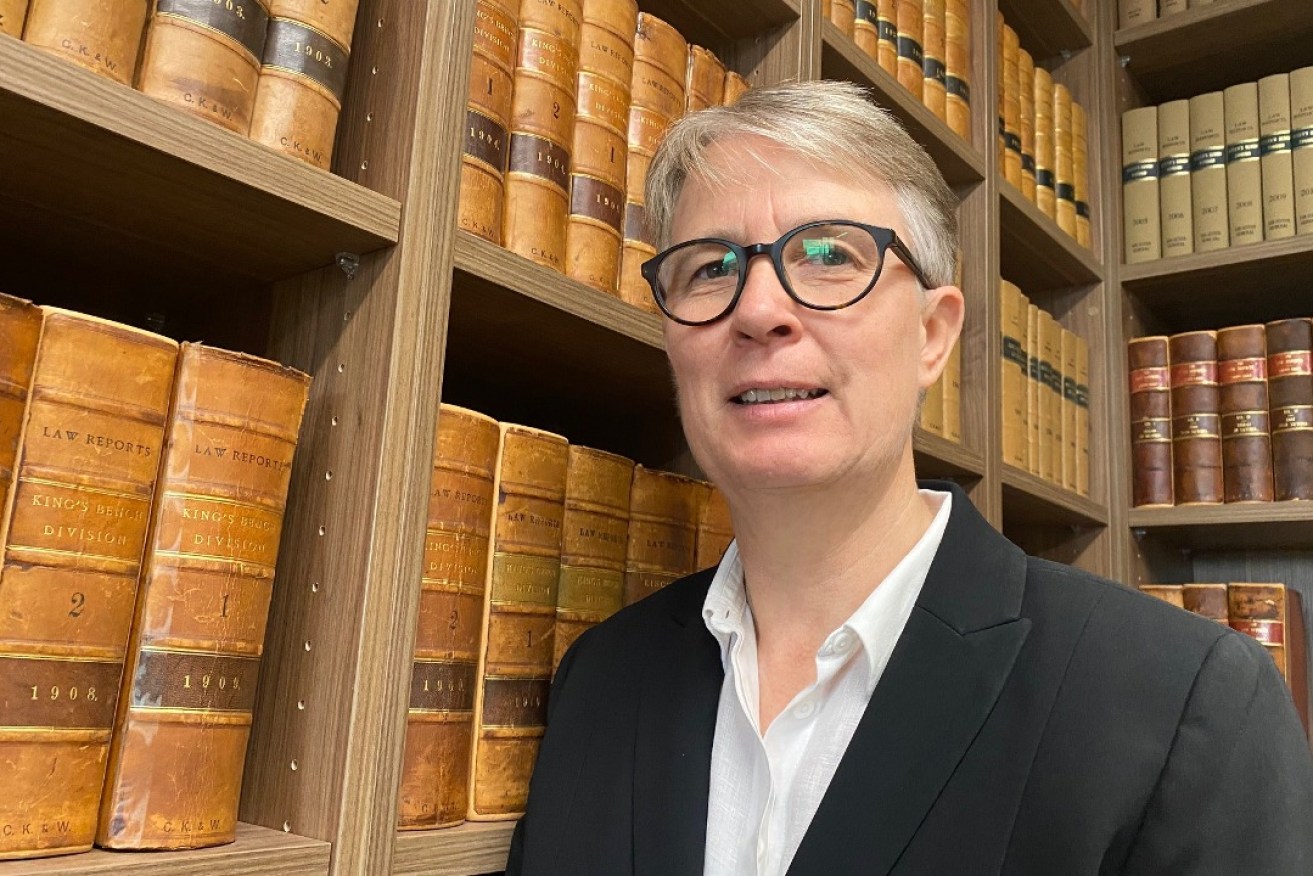‘People can’t shut their eyes to it anymore’: SA legal inquiry sparks change
One year since handing down a damning report into sexual harassment within South Australia’s legal profession, the Equal Opportunity Commissioner says there has been a “noticeable” decline in the number of complaints made to her office.

Equal Opportunity Commissioner Jodeen Carney. Photo: Supplied
Commissioner Jodeen Carney told InDaily she welcomed the fact the total number of sexual harassment complaints made to her office had “trended downwards” over the past year, but cautioned problem behaviour was likely still occurring within the legal fraternity.
The “review of harassment in the legal profession”, commissioned by state parliament and released last April, found that 42 per cent of the 600 South Australian legal practitioners who responded to a survey reported experiencing sexual or discriminatory harassment at work.
It uncovered allegations of “rampant” sexual harassment and assault, including accusations a magistrate messaged a lawyer during a court hearing to say he imagined them “kneeling between his legs at the bench” and that a Special Counsel locked a worker in a car and told them “all the ways he would have sex”.
I think a lot more people can’t shut their eyes to it anymore
Carney declined to provide specific data showing the total number of sexual harassment complaints made to her office since the review was released, but said the “relatively small number” had “noticeably started going down”.
“I don’t for a moment think that sexual harassment has disappeared. I do think, however, that people are reporting differently,” she said.
“It might suggest that there are fewer people being sexually harassed, however, as a result of the review, there are more pathways for complaints.
“Those pathways have been made really clear to people, so it may be that the reason for this decline in complaints lodged to this office is because more people are going to the likes of the Women’s Lawyers’ Association, or the Law Society, or the Professional Conduct Commissioner.
“No one, I don’t think, is keeping a global figure of how many complaints are made.”
Women Lawyers’ Association SA president Marissa Mackie told InDaily she had received “a lot more contact from people who have been concerned about contact that’s happened to them” since the release of the report.
She said the “culture of silence” within the legal profession was shifting, with legal practitioners now having more options to report problem behaviour when it occurs.
“I think a lot more people can’t shut their eyes to it anymore,” she said.
“It has been perhaps disheartening to have an increase, but also encouraging that people are thinking about speaking up and taking action.”
Both Mackie and Carney agreed that the legal profession had made progress to implement the 16 recommendations made in the review.
Lawyers must now receive compulsory professional development training on eliminating bullying, sexual harassment and discrimination in the workplace.
We haven’t solved the problem entirely, but everyone is committed to doing what they can to turn the ship around
South Australian universities have also started providing support to law students on bullying and harassment in the legal profession, as well as respectful workplace training before they start placements in the sector.
Former Supreme Court Judge Robyn Layton and former acting Equal Opportunity Commissioner Steph Halliday also delivered workshops and presentations to judicial officers.
“The legal profession’s response to the report had been focussed and impressive,” Carney said.
“When one considers the universities, the judiciary and the relevant groups – whether it be the Bar, Law Society, Women Lawyers’ Association – everyone has, I think, done well.
“From a number of cogs in the judicial wheel, we haven’t solved the problem entirely, but everyone is committed to doing what they can to turn the ship around.”
Mackie said the profession was “slowly but surely” implementing the recommendations, noting her association had developed its own “charter for the advancement of women in the legal profession”, which outlines strategies to retain women in the profession.
“We’ve been trying to deal with this for years and whilst we would have hoped that it was on the profession’s mind, I think that when the report came out, there were a lot of people who were quite surprised by the extent and nature of the conduct,” she said.
“Even I was a bit shocked to read some of the case studies – you wouldn’t expect that to happen in this day and age – so, I think the changes that we’re making now to implement these recommendations is moving at a reasonable pace.
“There’s a lot of other things that we’ve been trying to do that aren’t specifically addressing harassment, but have a flow-on effect, such as safer working practices and removing stigma for parental leave.”
However, both Carney and Mackie said state parliament was yet to implement some recommendations calling for legislative changes.
One such recommendation was to amend the Equal Opportunity Act to impose a positive duty upon employers to eliminate discrimination, sexual harassment and victimisation.
“That would mean that employers bear the responsibility to ensure that they eliminate discrimination and sexual harassment in the workplace,” Carney said.
“My impression was there wasn’t an appetite in the previous government to implement that recommendation.
“This government may well have a different view and I look forward to seeing whether that is the case.”




